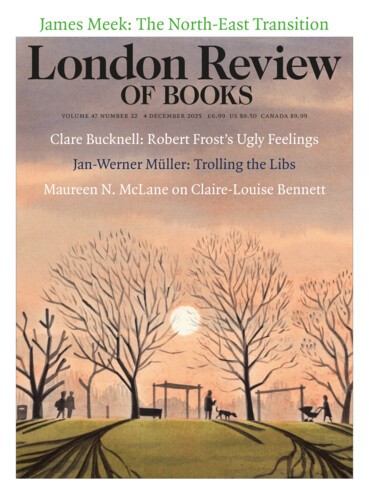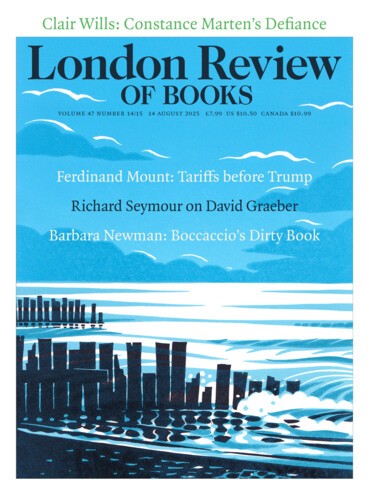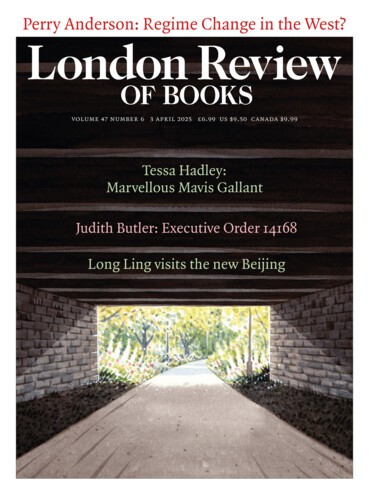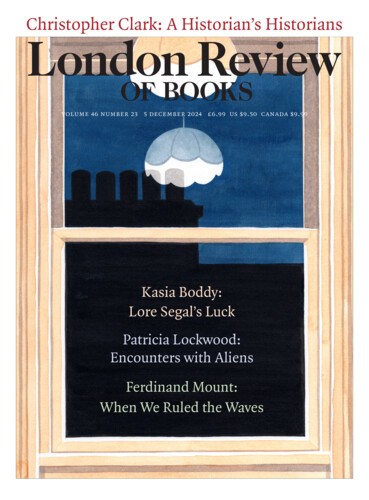His Very Variousness: Benjamin Franklin’s Experiments
Ferdinand Mount, 4 December 2025
In his middle age, during the seventeen years he lodged for long periods at 36 Craven Street, just off the Strand, Benjamin Franklin became addicted to what he called his ‘air bath’. Every morning, he would strip naked, throw open the windows and pass half an hour reading or writing in the nude, before dossing down refreshed for another hour or so, sometimes answering the door...





